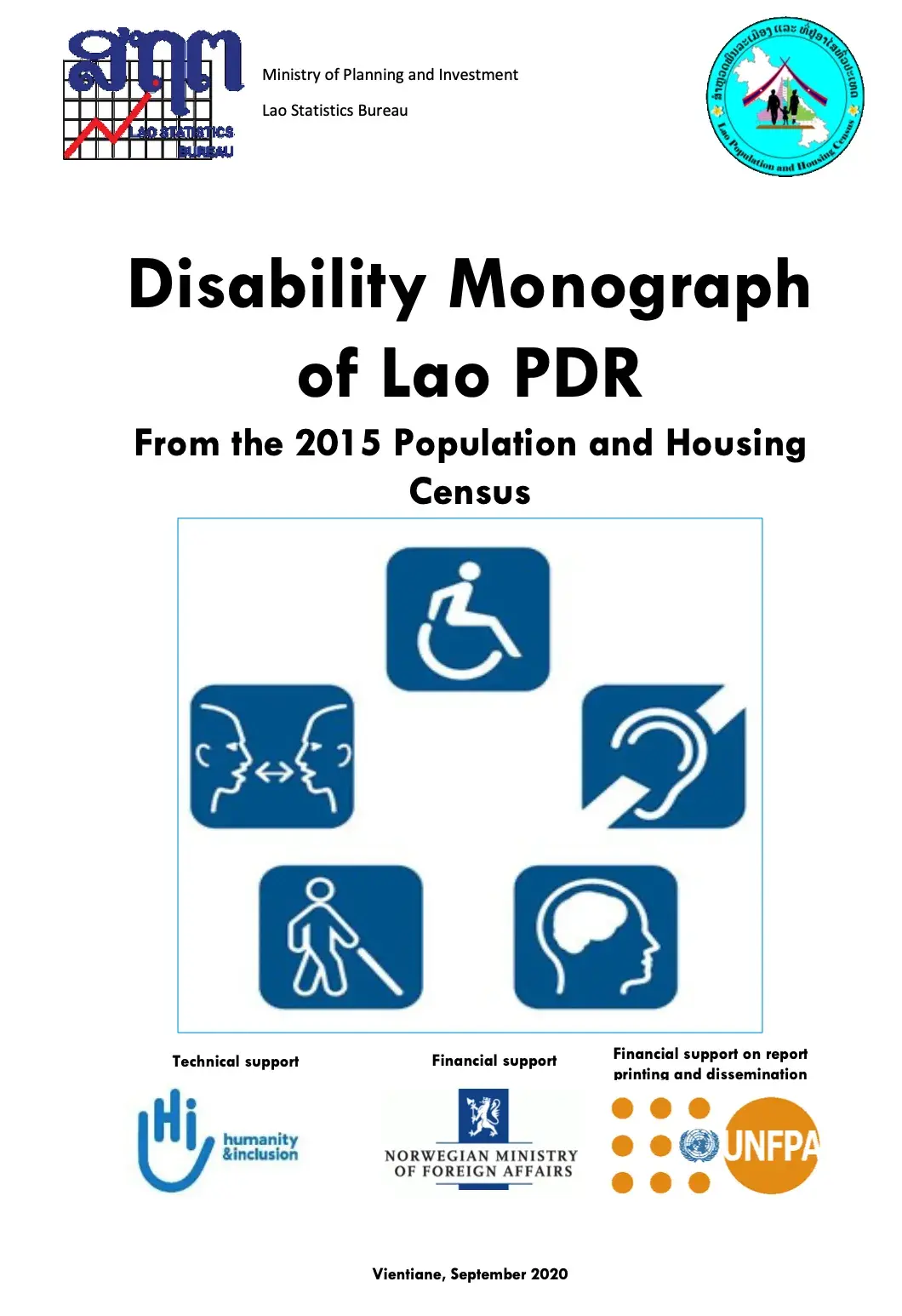Persons with disabilities are those people who have difficulty with seeing, hearing, walking, cognition, self-care and communication. This definition is derived from the Short Set of 6 questions set by the Washington Group for data collection on census. Collecting data on persons with disabilities provides the Government of Lao PDR (GoL) with information on planning services for them.
By having statistics on persons with disabilities, it enables GoL to findthe disparities between the situation of persons with and without disabilities. Whether persons with disabilities have equal access to education, health care, livelihoods, use of natural resources and being part of the communities.
Additionally having statistics on persons with disability enables GoL to address the issue of equity and equality. It also supports further research on the situation of persons with disabilities and how to address the challenges faced by them.
The main purpose of this Disability Monograph is to sensitise the society in Lao PDR about the situation of persons with disabilities. Statistics on persons with disabilities in particular is very useful for policy makers and planners in changing attitudes towards persons with disabilities as well as in developing equitable services for them.
The Lao Statistics Bureau, a department in the Ministry of Planning and Investment have published this Disability Monograph, whose data source is the fourth Lao Population and Housing Census conducted in 2015. The data will support any future Disability Inclusive Development in Lao PDR. We hope to continue to improve the quality standards of our data collection on persons with disabilities so that it we can also plan to provide good quality support services.


